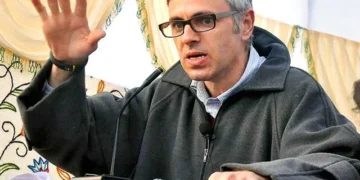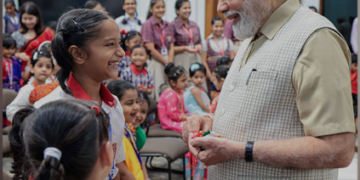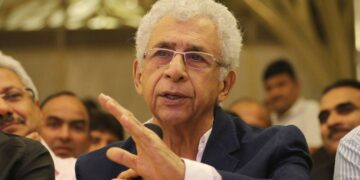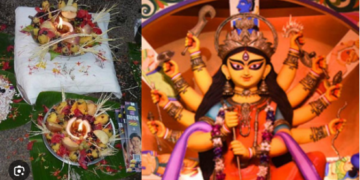Every year the National Education Day is celebrated on November 11 to commemorate the birth anniversary of India’s first Education Minister Maulana Abul Kalam Azad.
As an Educationist, Maulana Abul Kalam Azad played a key role in developing the education system in independent India.
Since September 11, 2008, on the day when the Ministry of Human Resource Development decided to celebrate National Education Day to mark the birth anniversary of Maulana Azad.
Azad has been well known to promote research in learning and literature and set up the three academies to develop
He is also credited to kickstart the work on compilation of technical terms in Hindi on a large scale.
During his tenure as the Education Minister, Maulana Abul Kalam Azad set up the University Grants Commission, the All India Council for Technical education, the Kharagpur Institute of Higher Education, the University Education Commission and the Secondary Education Commission.
He also played a major role for the establishment of Jamia Millia Islamia and IIT Kharagpur.
Azad had been advocating for education for women and free and compulsory primary education for children up to the age of 14.
He passed away on February 22, 1958
Here are five lesser-known facts about the late education minister who transformed the education system of India.
Maulana Abul Kalam Azad was born in Saudi Arabia
Maulana Abul Kalam Azad was born in Mecca, Saudi Arabia in 1888. His mother was an Arab and the daughter of Sheikh Mohammad Zaher Watri and Azad’s father, Maulana Khairuddin, was a Bengali Muslim of Afghan origins who came to Arab during the Sepoy Mutiny and proceeded to Mecca and settled there. He came back to Calcutta with his family in 1890 when Abul Kalam was two years old.
Abul Kalam was homeschooled and knew many languages
Azad pursued traditional Islamic education. He was taught at home, first by his father and later by appointed teachers who were eminent in their respective fields. Azad learned Arabic and Persian first and then philosophy, geometry, mathematics and algebra. He also learned English, world history, and politics through self-study. Azad also knew Hindustani, Hindi and English languages.
Started two weekly journals – Al-Hilal and Al-Balagh to promote Hindu-Muslim unity
In 1912, Maulana Abul Kalam Azad started a weekly journal in Urdu called Al-Hilal to increase the revolutionary recruits amongst the Muslims. Al-Hilal played an important role in forging Hindu-Muslim unity after the bad blood created between the two communities in the aftermath of Morley-Minto reforms. Al-Hilal became a revolutionary mouthpiece ventilating extremist views. ‘The government regarded Al- Hilal as a propagator of secessionist views and banned it in 1914.
Maulana Abul Kalam Azad then started another weekly called Al-Balagh with the same mission of propagating Indian nationalism and revolutionary ideas based on Hindu-Muslim unity. In 1916, the government banned this paper too and expelled Maulana Abul Kalam Azad from Calcutta and exiled him to Bihar from where he was released after the First World War 1920.
Youngest person to serve as the President of the Indian National Congress
Maulana Abul Kalam Azad supported Non-Cooperation Movement started by Gandhiji and entered Indian National Congress in 1920. He was elected as the president of the special session of the Congress in Delhi (1923). At an age of 35, he became the youngest person to serve as the President of the Indian National Congress.
Maulana Azad was arrested in 1930 for violation of the salt laws as part of Gandhiji’s Salt Satyagraha. He was put in Meerut jail for a year and a half. After his release, he again became the president of Congress in 1940 (Ramgarh) and remained in the post till 1946.
Founder of Jamia Milia Islamia University
Maulana Abul Kalam Azad was one of the founding members of the Jamia Milia Islamia University, originally established at Aligarh in the United Provinces, India in 1920.
He is responsible for shaping the modern education system of the country. The first IIT, IISc, School of Planning and Architecture and the University Grants Commission were established under his tenure as the education minister. The most prominent cultural, literary academies were also built including the Sangeet Natak Academy, Lalit Kala Academy, Sahitya Academy as well as the Indian Council for Cultural Relations.























